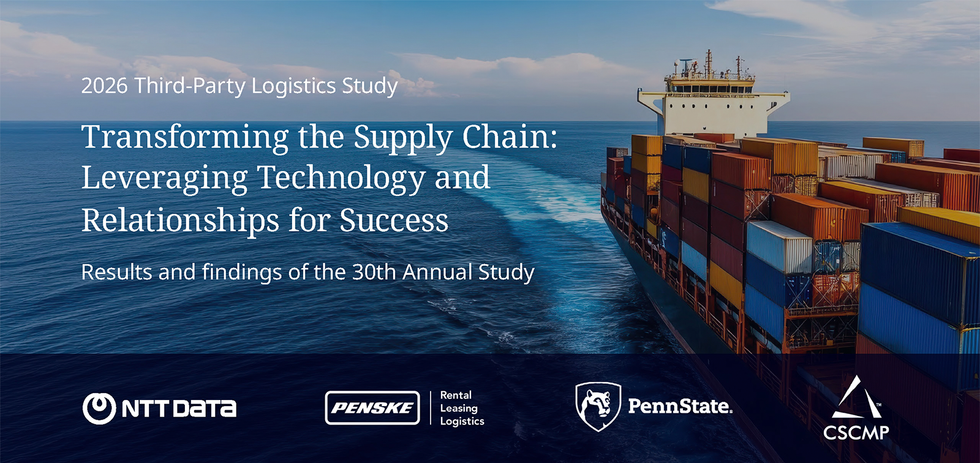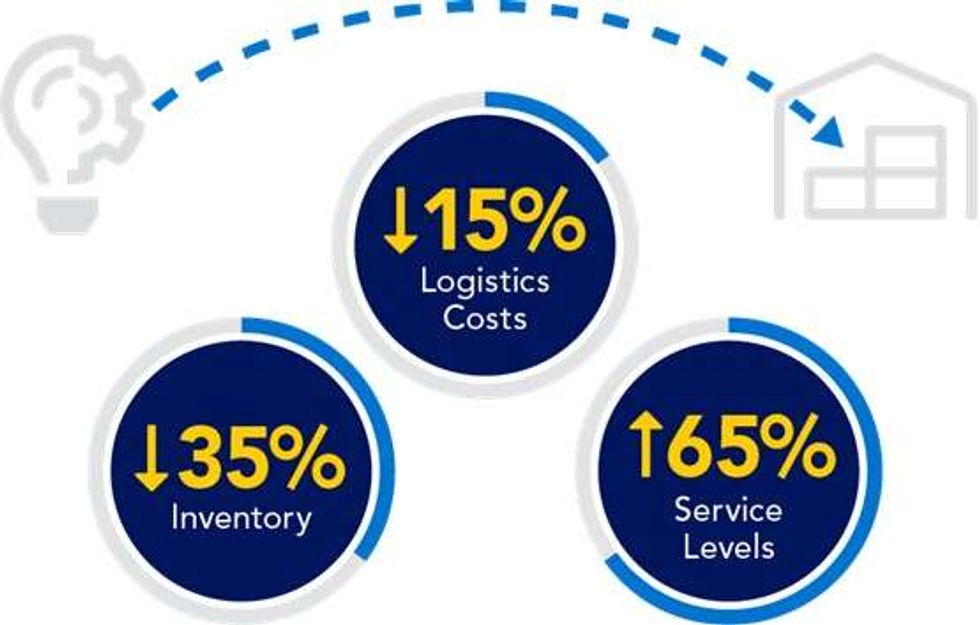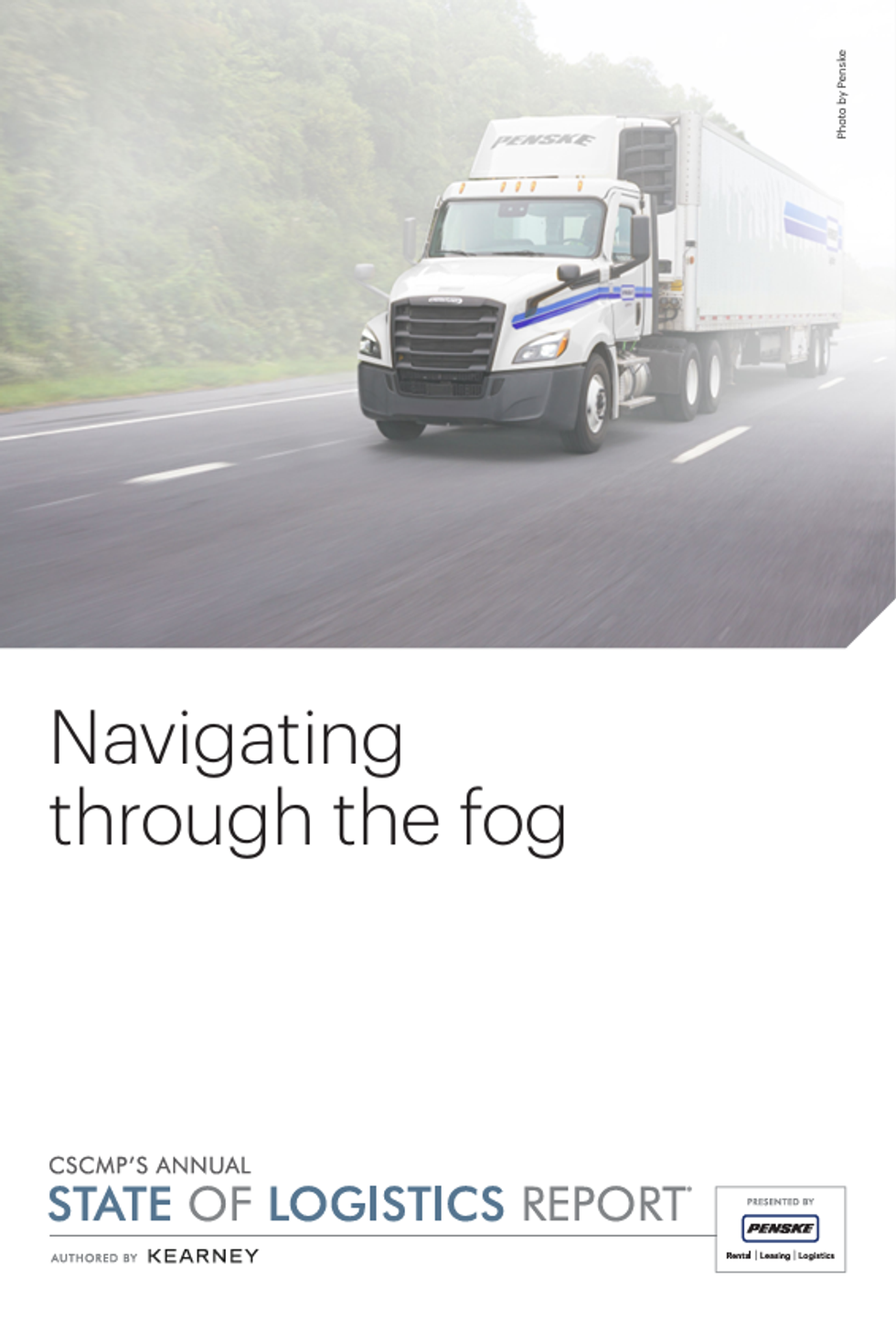Redundant routes, under-utilized assets, inefficient miles and stockouts are all signs that a supply chain network is operating below its potential. Whether it’s the invisible cost of two divisions running trucks along the same routes or routine emergencies caused by stockouts, designing out waste is one of the most powerful ways to improve resilience, reduce costs and increase profitability.
Network optimization is about constructing the most efficient and cost-effective supply chain network possible. The first step to eliminating waste is uncovering where it hides. Here are five signs it is time to evaluate the overall network.
1. Duplicate routes and facilities
As companies grow, especially through mergers or acquisitions, they may develop redundant warehouses, distribution centers or shipping lanes.2. Stockouts and emergency transfers
Stockouts can lead to last-minute inventory moves and shuffling across the network, which consumes resources and can hurt service.3. Escalating costs and manual workarounds
Rising logistics expenses, constant “firefighting” or growing reliance on manual interventions are early warnings of deeper structural issues. "Brokerage can be an important tool, but are you becoming reliant on it? Are you outsourcing routes to other carriers because your current carriers can’t take them? If you start seeing your on-time and in-full measurements go down, it can indicate you have a problem somewhere," said Amy Ilyes, vice president of logistics engineering at Penske Logistics.4. Siloed data and incompatible IT systems
When different divisions use separate IT platforms, holistic planning and optimization are nearly impossible. “A lot of times they’re on different IT platforms, and that is a big barrier to exploiting the synergies within the different supply chains,” Ilyes continued.5. Labor capacity can’t scale with demand
Comparing metrics across divisions becomes challenging when each uses its own definitions and measurement standards and can lead to confusion and missed improvement opportunities. "If you think about an acquisition, sometimes companies aren't using the same metrics, or the basis for the metrics is different. So even though you think it's on time and in full, what's within the metrics might be slightly different between the divisions," Ilyes said, adding that it is important for everyone to speak the same language.Optimizing the Network
Eliminating waste from supply chains requires both strategic vision and operational discipline. Key steps include:
Network redesign
Ilyes recommends starting with a "greenfield" network design, considering all facilities and flows from scratch to identify the optimal footprint and resource allocation. Selecting the right number, placement and size of manufacturing sites, distribution centers and cross-docks helps achieve optimal efficiency. This includes evaluating whether products are currently being shipped from the optimal locations within the network and looking for redundant facilities or those that are underutilized.
Transportation and routing efficiency
Transportation is one of the largest sources of waste when a supply chain network is not optimized. Shippers and their logistics providers can reduce total miles by re-routing shipments or sourcing products closer to demand, cutting unnecessary distance from the network. They can also improve trailer utilization by consolidating shipments, improving loading or adjusting equipment size, such as switching to 53-foot trailers from 48-foot trailers. Coordinating return freight and filling backhauls help eliminate empty return legs, further reducing waste. In addition, running "what-if" scenarios that test different suppliers, ports or transportation modes allows shippers to evaluate costs and service levels of different options.
Inventory optimization
Inventory is expensive and holding too much of it or keeping it in the wrong locations adds to inventory carrying costs and the overall transportation spend. Ideally, inventory should align with demand through accurate forecasting. Optimizing product flows can also involve rebalancing supply and demand zones to ensure inventory sits closer to where it will be consumed, reducing transit time and the need for buffer stock. There may also be opportunities to use smaller regional fulfillment centers or micro-warehouses to cut last-mile costs. Improving visibility and lead-time reliability can reduce the need for safety stock.
Technology and data
Accurate data and technology, including artificial intelligence, is becoming increasingly important for identifying waste and uncovering opportunities to improve. Ilyes added that it is essential to integrate and normalize data from multiple sources. If warehousing, transportation and sourcing each make decisions in silos, shippers won't achieve the same results as an organization working holistically. Additionally, consistent, meaningful metrics ensure all divisions evaluate performance the same way, creating alignment and enabling true end-to-end optimization.
Boosting Resilience and Creating Competitive Advantage
Finding and eliminating waste not only cuts costs but also strengthens resilience. Markets shift, demand evolves, transportation costs fluctuate, and networks must adapt. Ilyes notes that it is critical to revisit network design regularly to remain responsive to new volumes, demands and operating constraints.
Ilyes said it is imperative to garner support for a leaner network among supply chain leaders by aligning incentives and communicating the benefits transparently. “You need to make sure they're all aligned the same way and that you can exploit synergies between different companies or different divisions,” Ilyes said. “There are cases where one division may lose in some areas, and one division may win. If the measurement isn't set up right for the leaders, they may not want to play.”
The right strategy, technology, team alignment and change management, can create a more efficient, resilient and competitive supply chain network. Penske Logistics helps companies uncover hidden inefficiencies, redesign their networks, and deploy intelligence-driven transportation and distribution strategies that reduce cost and improve performance.




